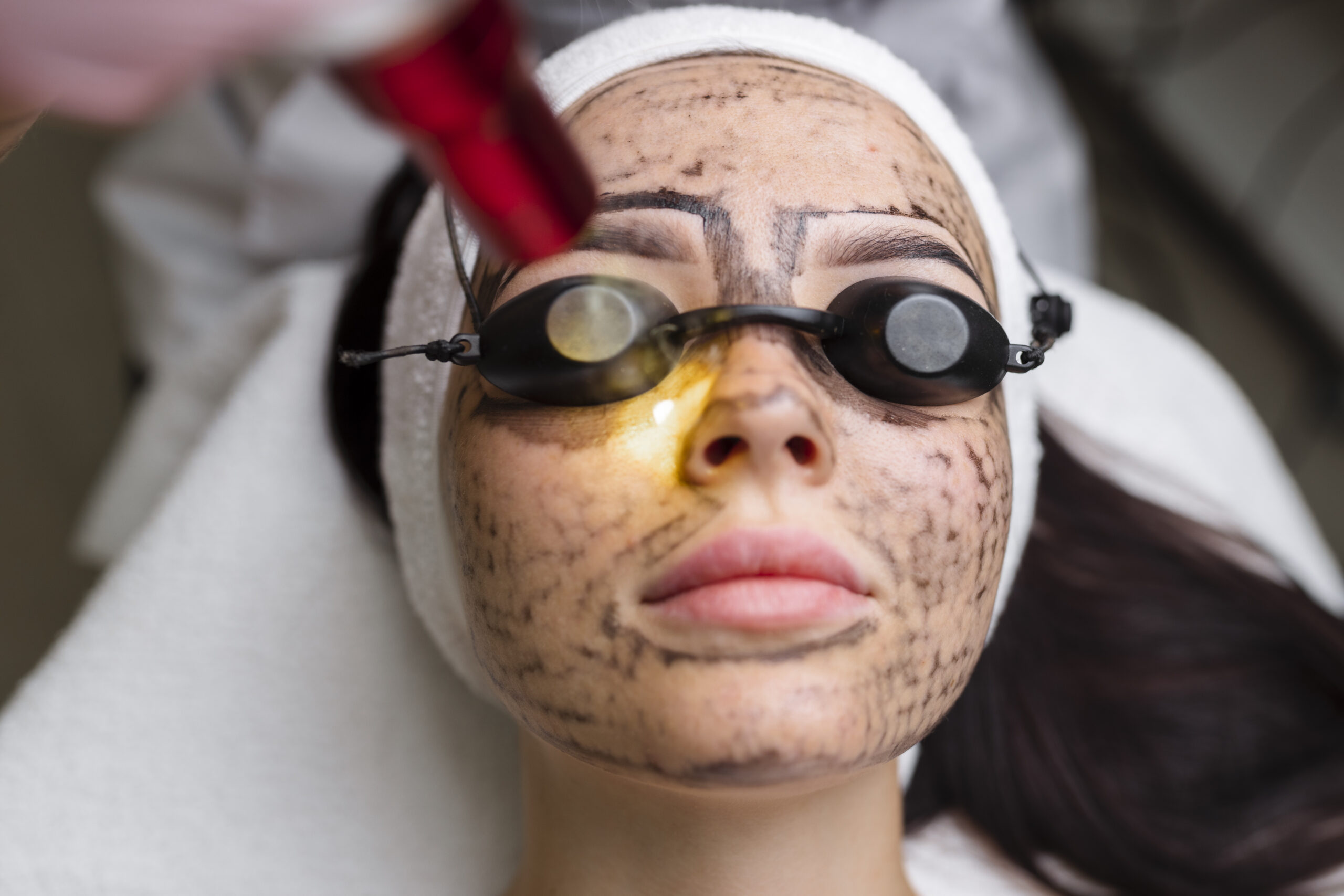Dark spots, whether caused by acne scars, sun exposure, or hormonal changes, can be frustrating and hard to treat. They often create uneven skin tones that make us feel self-conscious and less confident. If you’re struggling with dark spots and are looking for a solution, skin lightening treatments might be exactly what you need to restore your natural glow and achieve a more even complexion.
In this blog, we’ll explore the best skin lightening treatments for dark spots and how they can help you get the clear, radiant skin you’ve been longing for.
What Causes Dark Spots?
Dark spots, also known as hyperpigmentation, occur when certain areas of the skin produce excess melanin (the pigment responsible for skin color). These spots can appear anywhere on the body but are most common on the face, shoulders, and hands. Some of the main causes include:
- Sun Exposure: UV rays trigger increased melanin production, often resulting in sun spots or freckles.
- Acne Scars: After a pimple heals, it can leave behind a dark mark, especially in people with darker skin tones.
- Hormonal Changes: Conditions like melasma or pregnancy-related pigmentation can cause dark patches, especially on the face.
- Skin Inflammation: Any injury or irritation to the skin can lead to post-inflammatory hyperpigmentation, which leaves dark marks after the skin heals.
Fortunately, several skin lightening treatments are available to address these issues and help fade dark spots, giving you smoother, more even skin.
Top Skin Lightening Treatments for Dark Spots
1. Vitamin C Serums
Vitamin C is a powerful antioxidant that can lighten dark spots and even out the skin tone. It works by inhibiting melanin production and promoting the growth of new, healthy skin cells. Regular use of a Vitamin C serum can gradually fade dark spots, brighten your complexion, and protect your skin from environmental damage.
2. Chemical Peels
Chemical peels use a blend of acids to exfoliate the skin’s surface, removing dead skin cells and promoting skin regeneration. They can be especially effective for treating dark spots, as they speed up the process of cell turnover, helping to reveal fresh, new skin. Depending on the strength of the peel, multiple sessions may be required for optimal results.
3. Hydroquinone Creams
Hydroquinone is a skin-lightening agent commonly used to treat hyperpigmentation. It works by reducing the production of melanin in the skin, which helps lighten dark spots over time. While effective, hydroquinone should be used under professional guidance, as prolonged use can lead to skin irritation.
4. Laser Treatment
Laser treatments like fractional laser or intense pulsed light (IPL) can effectively target dark spots beneath the skin’s surface. These treatments work by breaking down melanin, which is then absorbed by the body. Laser therapy provides more dramatic and quicker results, but it is essential to consult with a professional to ensure it’s suitable for your skin type.
5. Retinoids
Retinoids, including prescription-strength tretinoin, can help to fade dark spots by accelerating skin cell turnover. These treatments stimulate collagen production and improve skin texture, leading to brighter, more even skin. However, retinoids can make your skin more sensitive to the sun, so it’s important to use them with sunscreen.
6. Natural Remedies
For those looking for a gentler approach, several natural ingredients can help lighten dark spots over time. Ingredients like licorice extract, aloe vera, and green tea have skin-brightening properties and can gradually reduce pigmentation. While not as fast-acting as professional treatments, these natural remedies can still be effective when used consistently.
How to Maximize the Effectiveness of Skin Lightening Treatments
While treatments can make a significant difference in fading dark spots, there are some additional steps you can take to help the process:
- Sun Protection: UV exposure can worsen dark spots, so applying sunscreen with broad-spectrum protection is crucial. Use a sunscreen with an SPF of at least 30 every day to protect your skin from harmful rays.
- Consistency is Key: Most treatments require consistent use over time. Be patient and allow several weeks or months for visible results.
- Gentle Skincare Routine: Avoid harsh exfoliants or products that could irritate the skin. Stick to gentle, hydrating skincare products to support your skin’s healing process.
Conclusion:
If dark spots are affecting your skin’s appearance, skin lightening treatments can help restore a more even complexion and boost your confidence. From Vitamin C serums and chemical peels to more advanced treatments like laser therapy, several options are available to fade dark spots and reveal brighter, clearer skin.
Consulting with a skincare professional is key to determining which treatment will work best for your skin type and concerns. Whether you opt for a natural remedy or a more intensive treatment, taking the first step toward addressing dark spots can make all the difference in your skincare journey.


